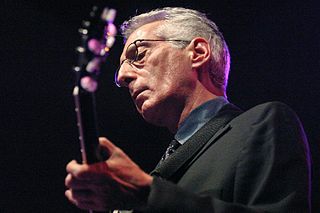A Quote by Herbert Marcuse
Related Quotes
We cannot ultimately specify the grounds (either metaphysical or logical or empirical) upon which we hold that our knowledge is true. Being committed to such grounds, dwelling in them, we are projecting ourselves to what we believe to be true from or through these grounds. We cannot therefore see what they are. We cannot look at them because we are looking with them.
The blessed Paul argues that we are saved by faith, which he declares to be not from us but a gift from God. Thus there cannot possibly be true salvation where there is no true faith, and, since this faith is divinely enabled, it is without doubt bestowed by his free generosity. Where there is true belief through true faith, true salvation certainly accompanies it. Anyone who departs from true faith will not possess the grace of true salvation.
The true historical genius, to our thinking, is that which can see the nobler meaning of events that are near him, as the true poet is he who detects the divine in the casual; and we somewhat suspect the depth of his insight into the past who cannot recognize the godlike of to-day under that disguise in which it always visits us.
Intuitionists think that there are cases in which, say, some identity statement between real numbers is neither true nor false, even though we know that it cannot possibly be false. That is: We know that it cannot not be that a = b, say, but we cannot conclude that a = b. We can't, in general, move from not-not-p to p in intuitionistic logic. , I suggest that the believer in vague objects should say something similar. It can never be true that it is vague whether A is B. But that does not imply that there is always a fact of the matter whether A is B.
You cannot speak that which you do not know. You cannot share that which you do not feel. You cannot translate that which you do not have. And you cannot give that which you do not possess. To give it and to share it, and for it to be effective, you first need to have it. Good communication starts with good preparation.
The truths of the Judaic-Christian tradition, are infinitely precious, not only, as I believe, because they are true, but also because they provide the moral impulse which alone can lead to that peace, in the true meaning of the word, for which we all long. .?.?. There is little hope for democracy if the hearts of men and women in democratic societies cannot be touched by a call to something greater than themselves.
If 'god' is a metaphysical term, then it cannot be even probable that a god exists. For to say that 'God exists' is to make a metaphysical utterance which cannot be either true or false. And by the same criterion, no sentence which purports to describe the nature of a transcendent god can possess any literal significance.
Correct is to recognize what diseases are and whence they come; which are long and which are short; which are mortal and which are not; which are in the process of changing into others; which are increasing and which are diminishing; which are major and which are minor; to treat the diseases that can be treated, but to recognize the ones that cannot be, and to know why they cannot be; by treating patients with the former, to give them the benefit of treatment as far as it is possible.







































